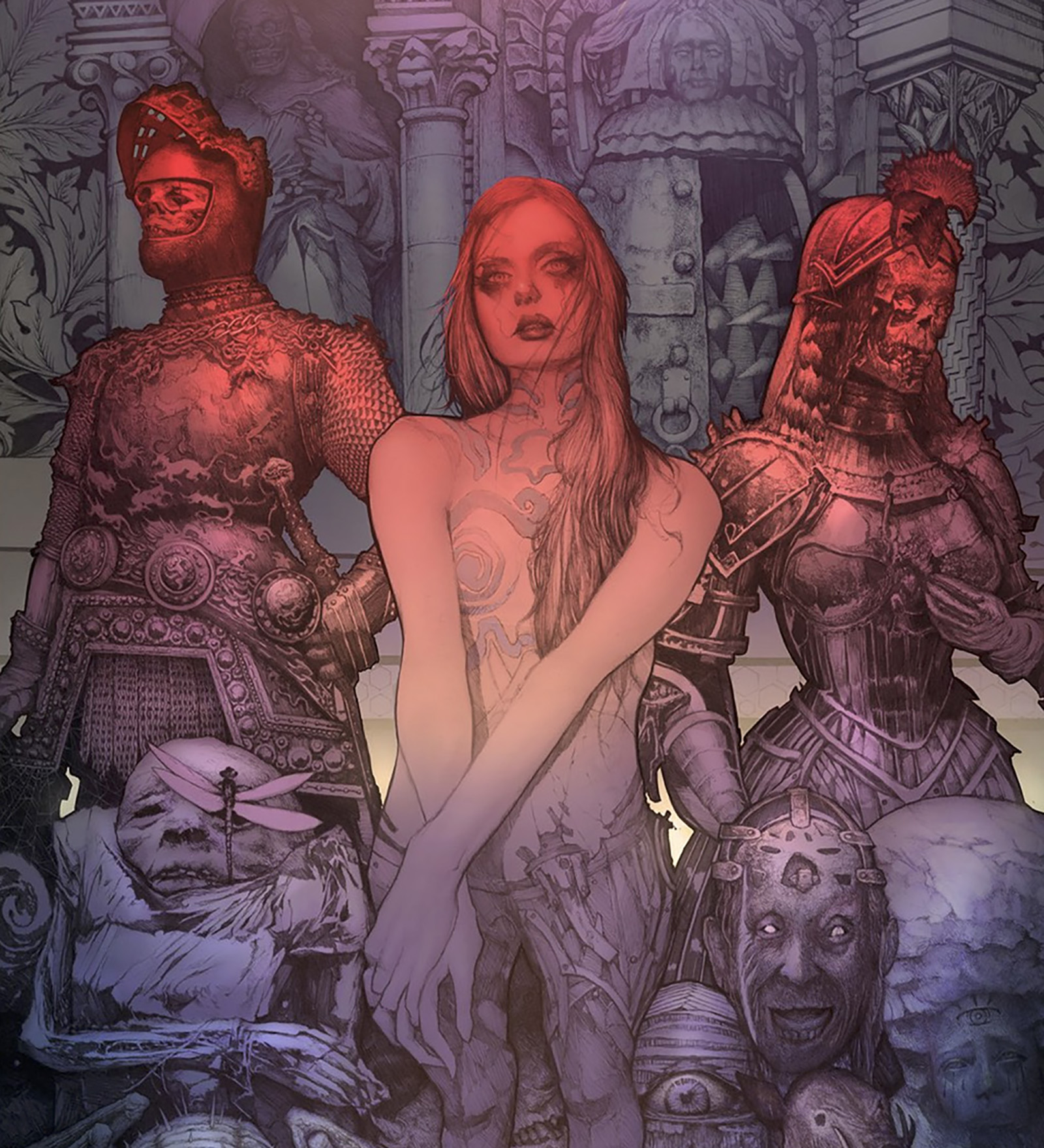DAN QUINTANA Gallery
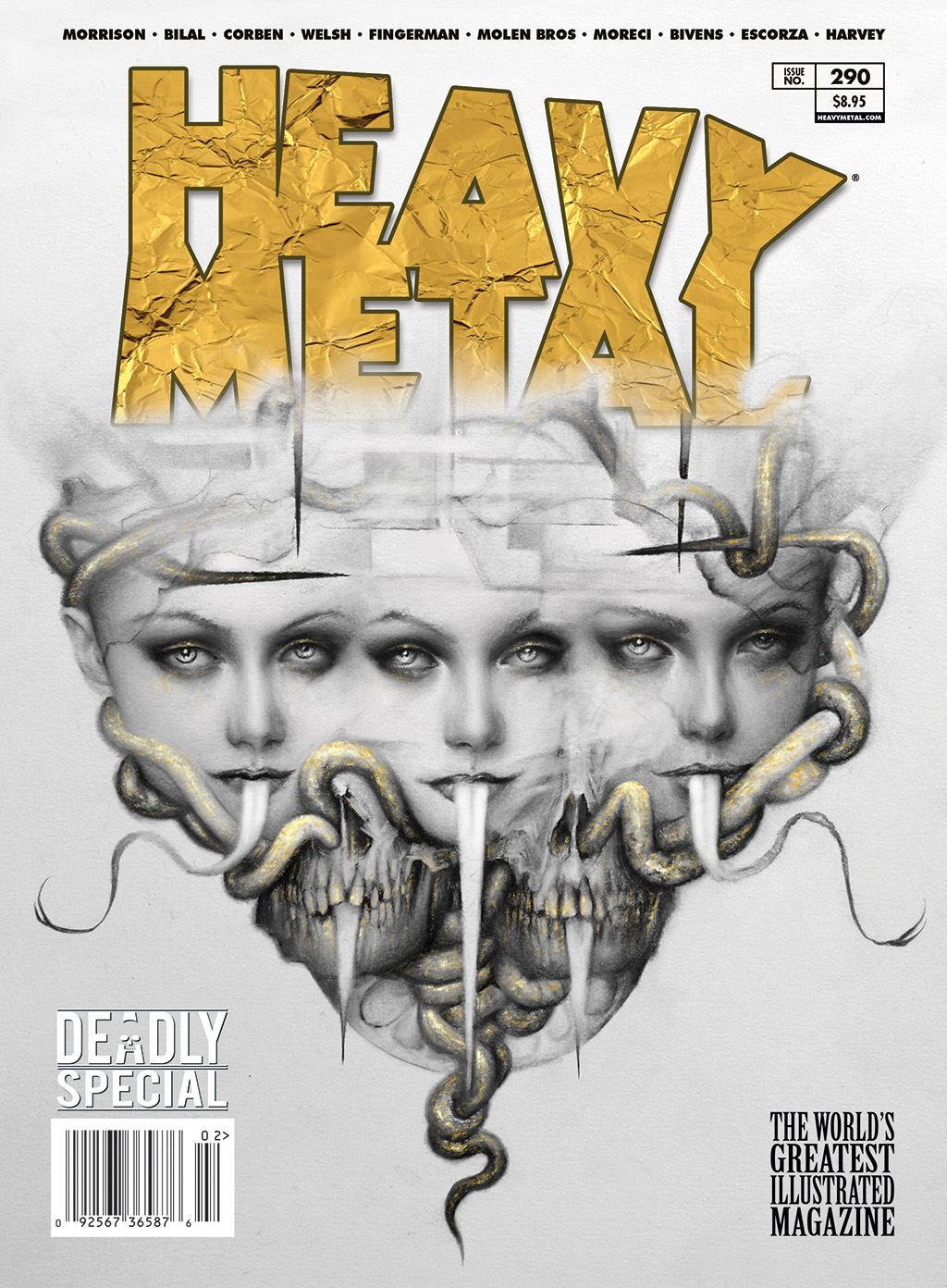
Interview by Rantz Hoseley
HEAVY METAL: How long have you been making art? Was this always the thing that you wanted to do?
DAN QUINTANA: I've been creating art for as long as I can remember holding a crayon or pencil. This is something I can recall wanting to do full time as a kid. I was leaning more towards being a great comic book artist one day. Ha ha.
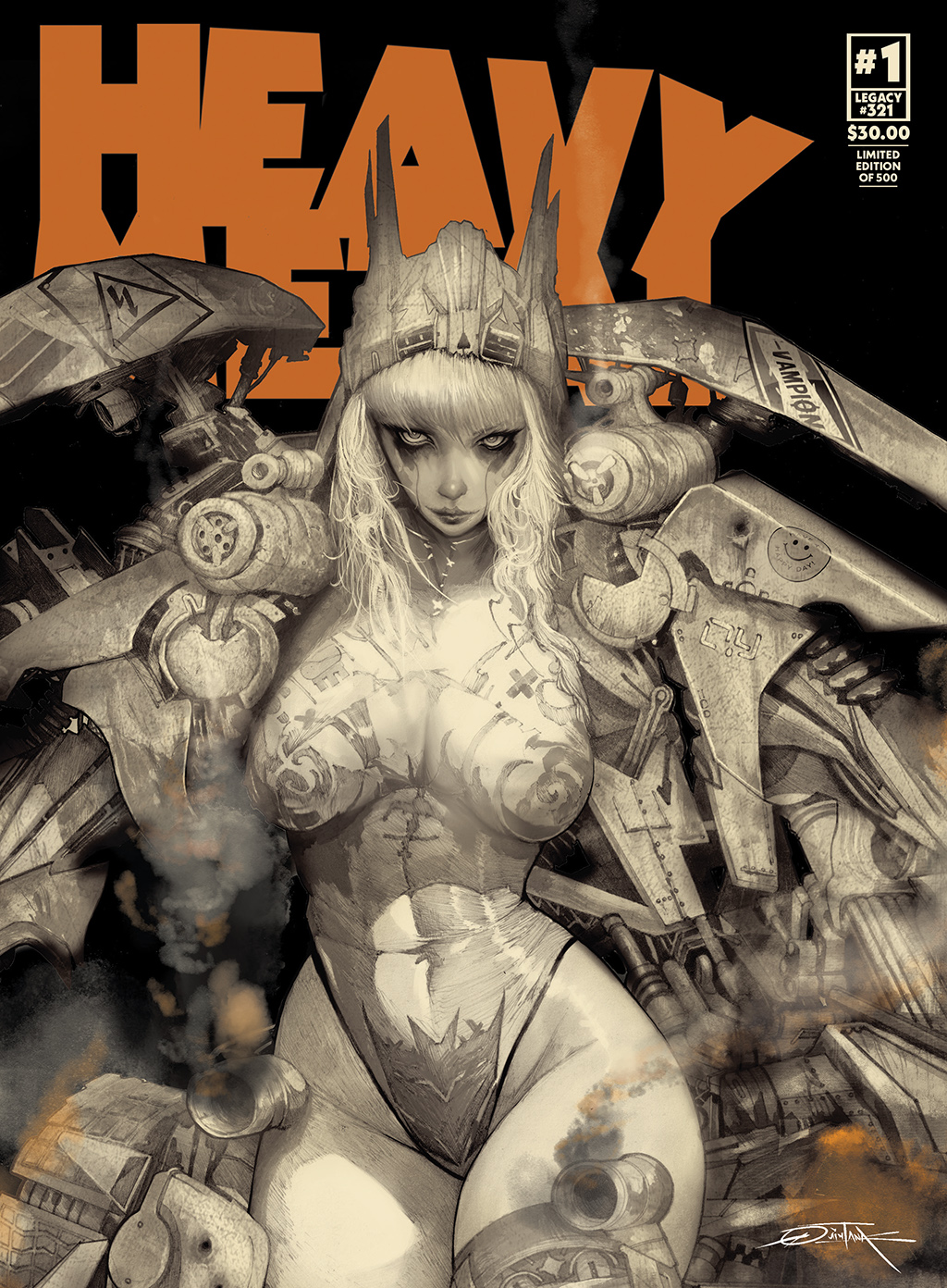
HM: There’s a lot of different elements that peek through in the style your work. What were your biggest influences in the development of your aesthetic and visual approach?
DQ: I'm sure film had to do a lot with it. My father introduced me to a lot of '50s classic sci-fi, horror, and epic adventures on TV from stuff he grew up on. I grew up throughout the '80s and '90s as a kid watching MTV with a lot of those great experimental clay animated music videos and animated shorts. At the same time reading comic books and those Alvin Schwartz stories, illustrated with cool horror imagery. It wasn’t until my teens where I began really looking into discovering the surrealist and classical painters we all know of.
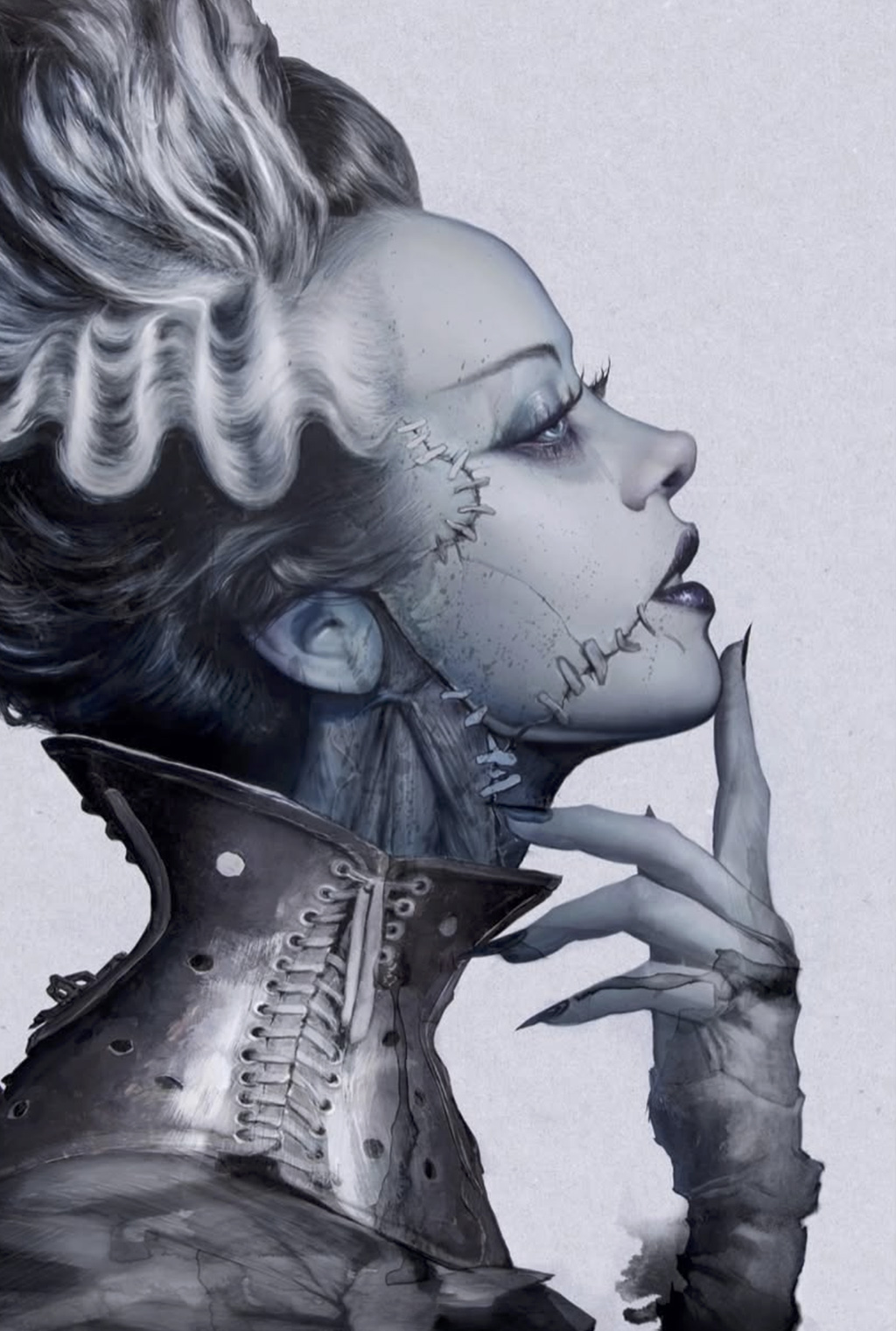
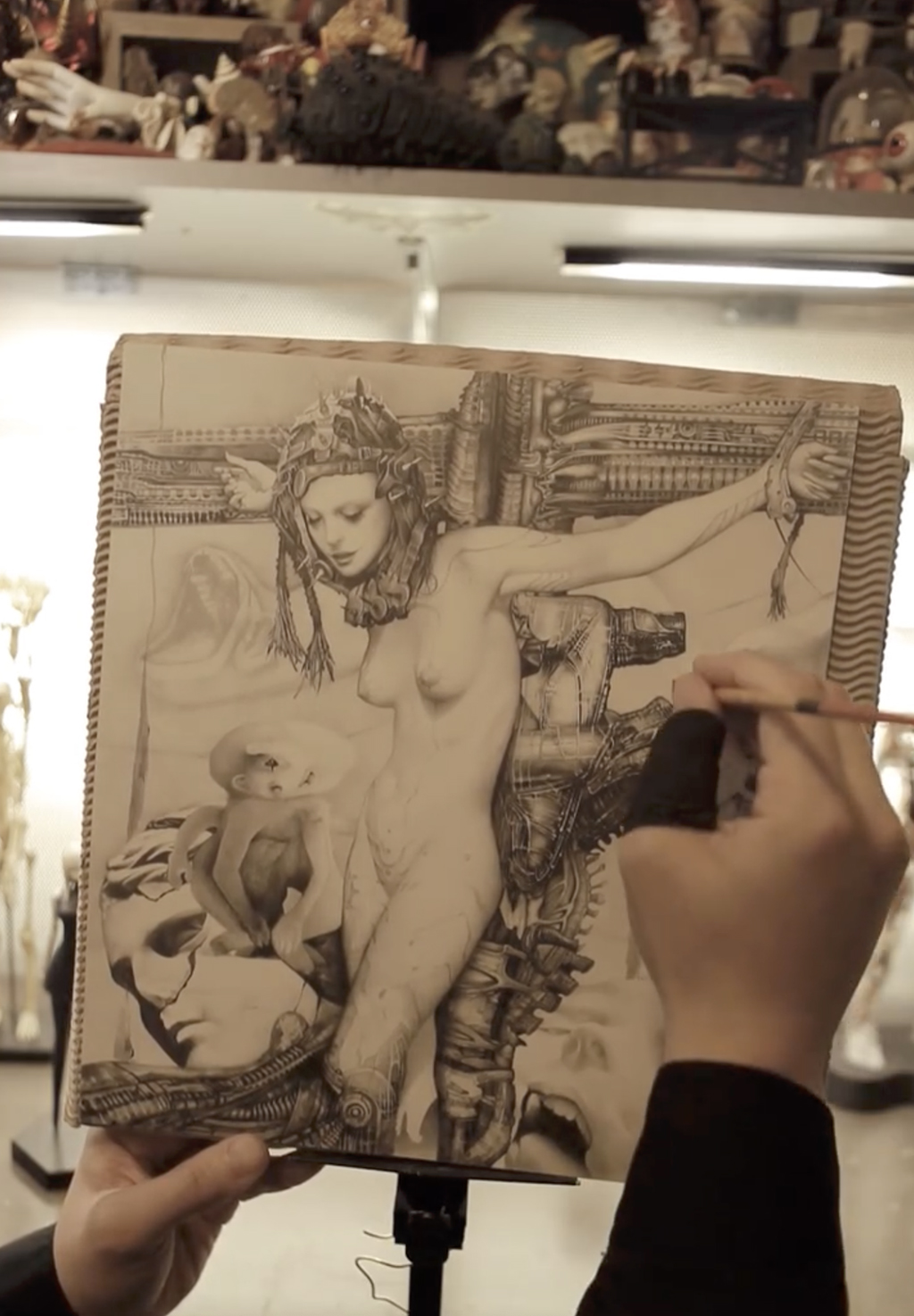
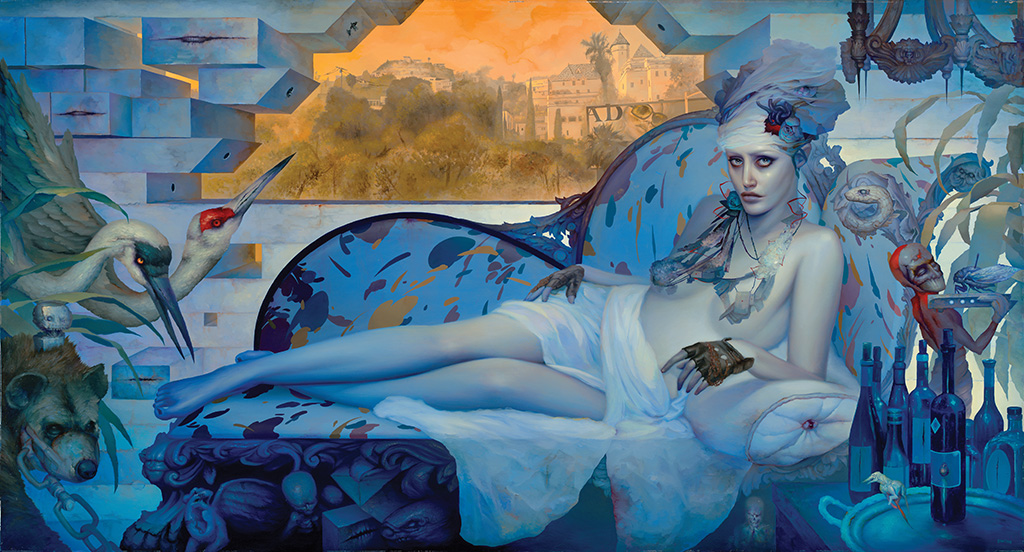
HM: Many artists have a seminal visual experience… a piece of art, a film, sometimes a book or a piece of music that really flipped the switch for them and made it clear that they had to create. Did you have that kind of experience? If so, what was the work that lit up your brain?
DQ: For me it's always been a mesh of visuals early on so I had been creating from the very start. Even if it weren't drawing or painting yet, I recall constructing my own toys, etc.
I think what really flipped the switch was when I remember seeing this image from a Hieronymus Bosch painting. It's a detail scene from a much larger painting. There's this farmer being mauled alive by this beast in broad daylight and what seems to be his wife, is about to run away dropping her pitchfork and only then, by scanning the dirt trail she's fleeing on, you discover the little details throughout the bushes and trees that there exist other beasts about to ambush her. The entire scene is a trip. I can't imagine witnessing a loved one being attacked that way and feeling so helpless. It was great story telling with still images. I wanted to begin storytelling with images of my own.
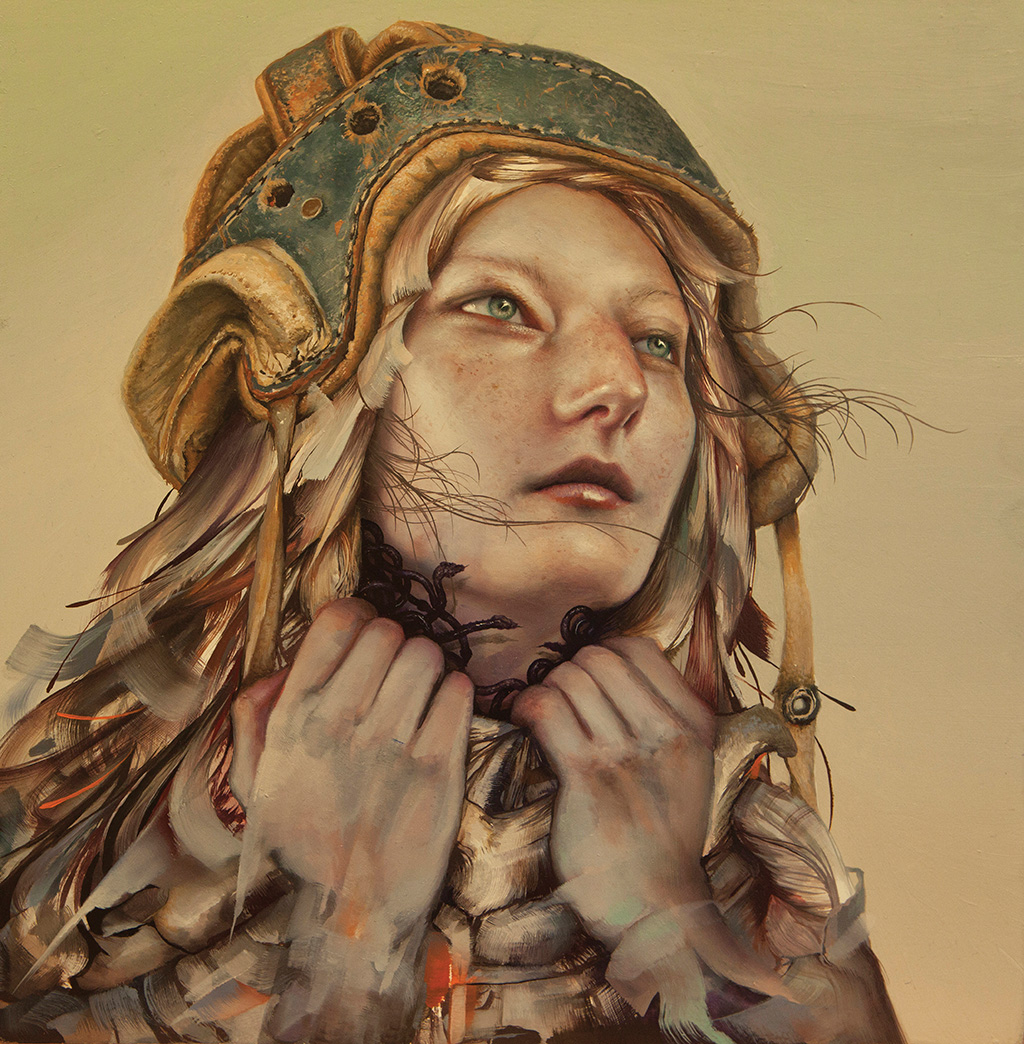
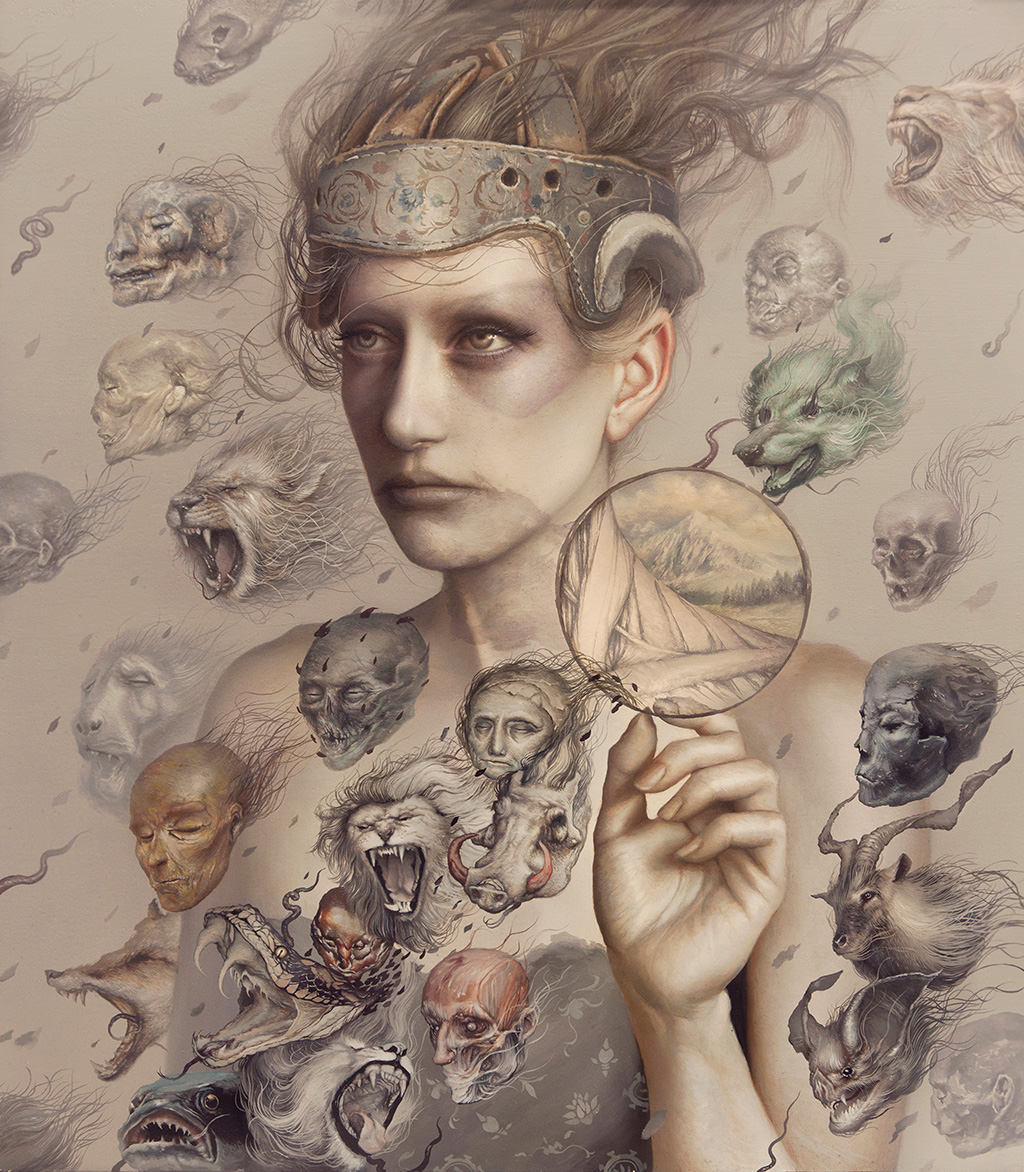
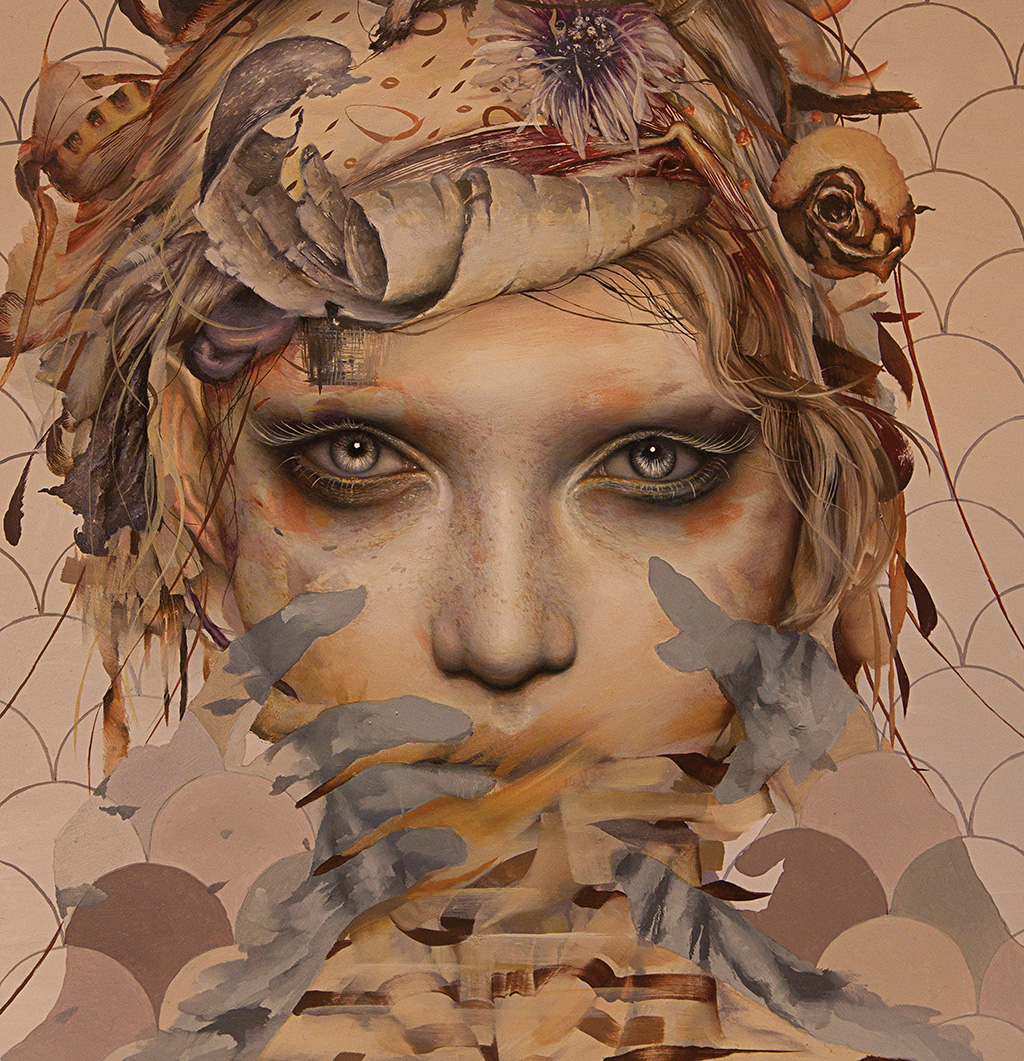
HM: How much of your style and technique is developed individually, through personal trial and experiment, versus formal training?
DQ: All of it. I never attended art school. I'm definitely not against it at all. I just had an early start and my path was laid out differently. I read up on a lot of oil techniques from art professors' notes. Once the internet became more accessible at home, the rest was history. Dial up was a bitch, though.
HM: In your work, there’s a blend of soft innocence colliding up against darker, deadlier themes. Can you talk a bit about why those oppositions are important to you?
DQ: Subtlety. I believe you can make something scream without all the gore. Suggesting just a tiny drop can have much more impact at times.
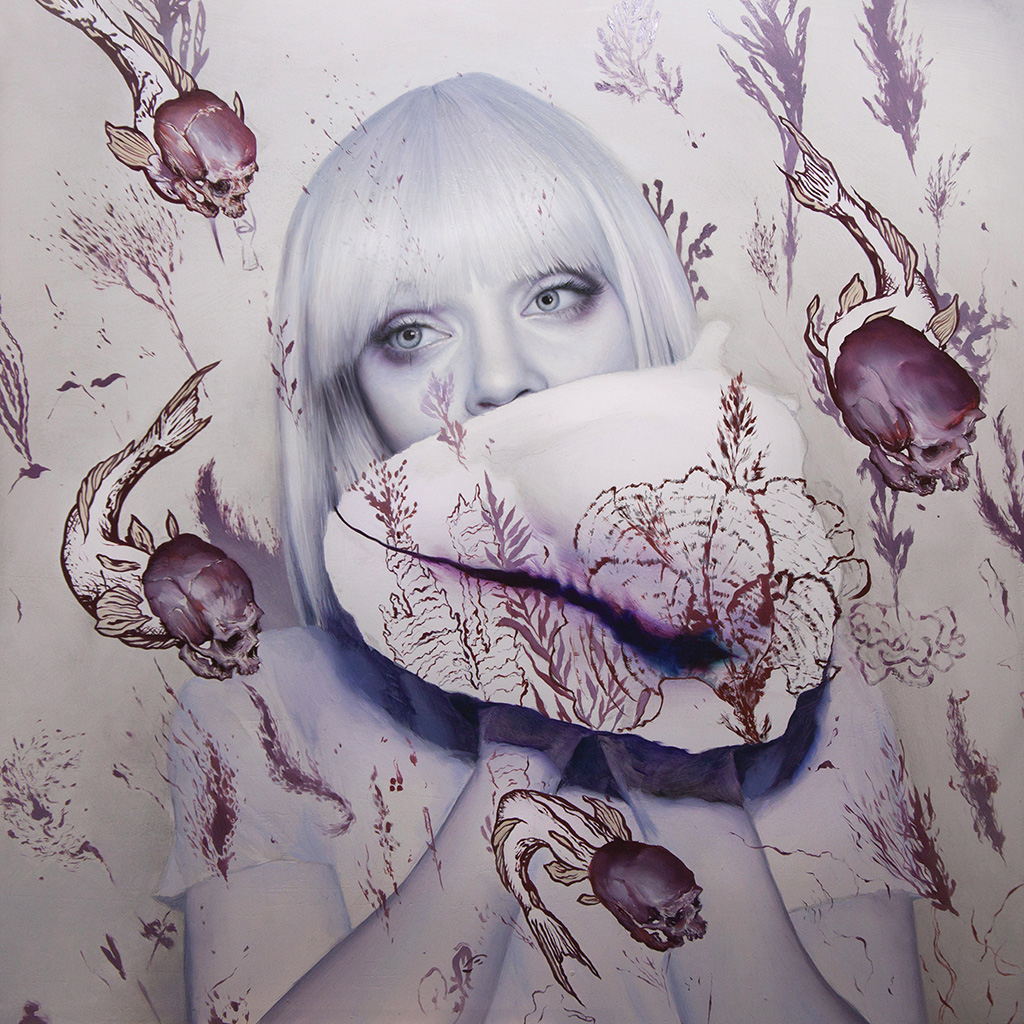
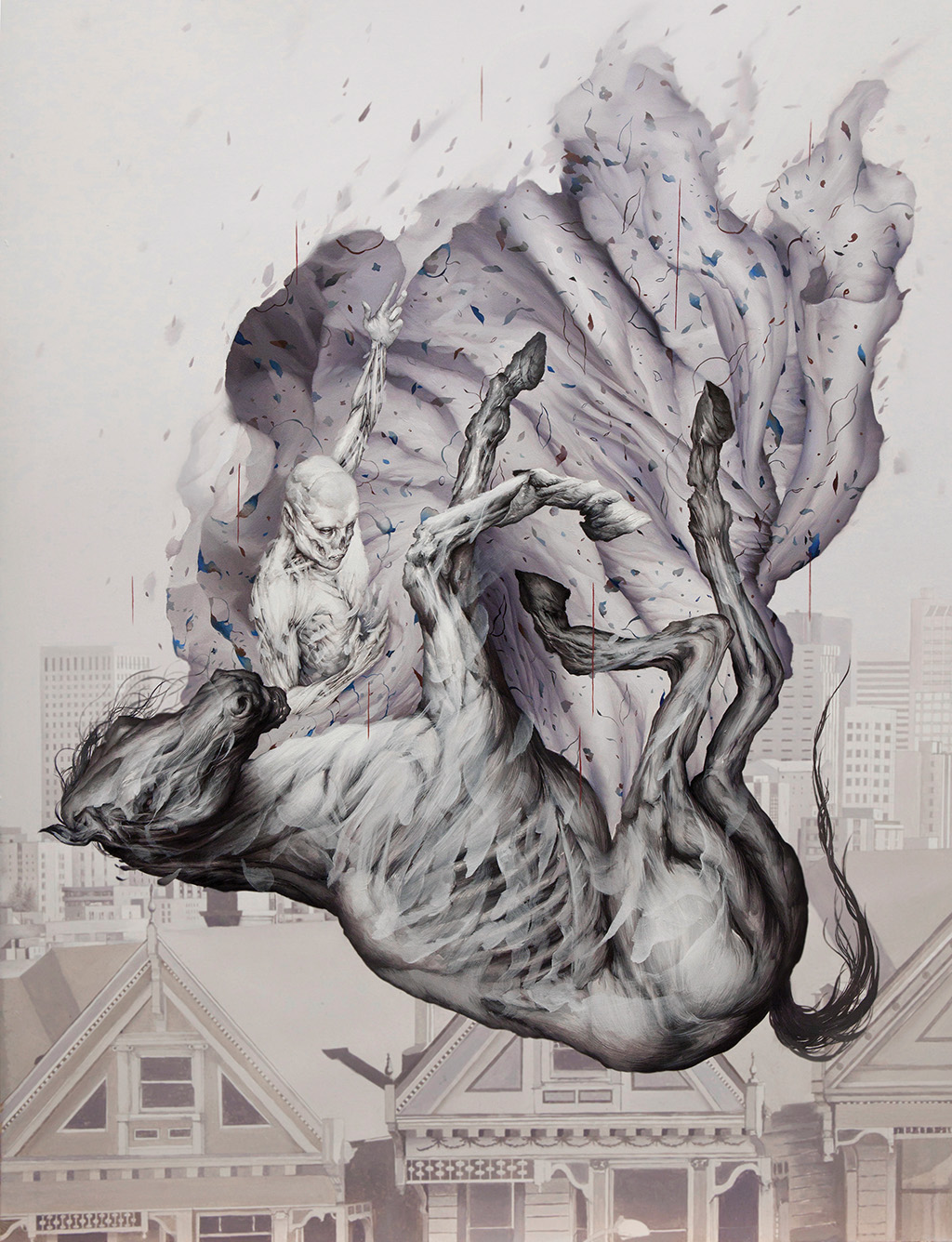
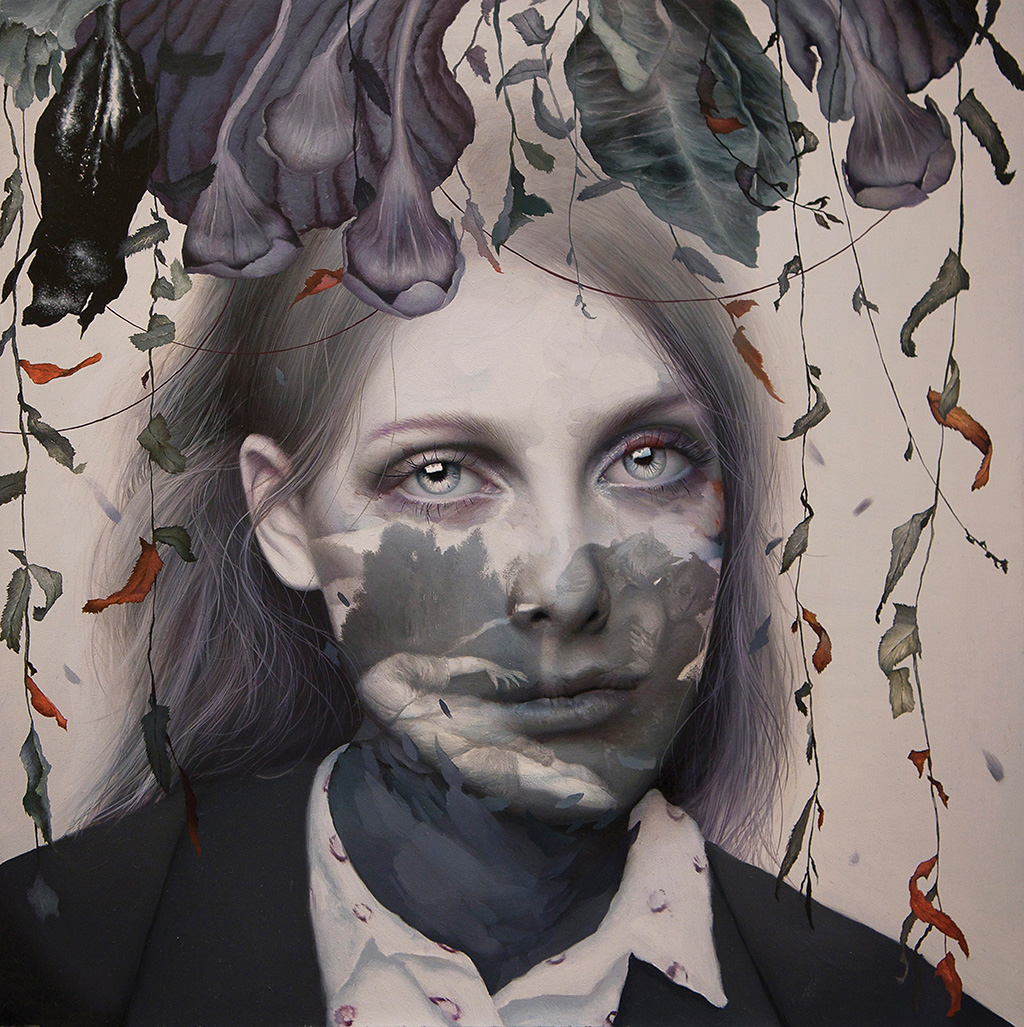
HM: You work in video, as well as mixed media, and oils. What is your favorite format to express yourself in?
DQ: I'm universal due to my past art-related jobs. I love film editing, so when drawings or an oil painting or a digital art piece is introduced, you land up with something like animation that I find a real pleasure in playing with. I don't have a fave as I love them all equally.
HM: What is your Mt. Everest… the thing you are dying to climb creatively, that you haven’t scaled yet?
DQ: Would love to design and be the art director to an entire film. Soon enough.
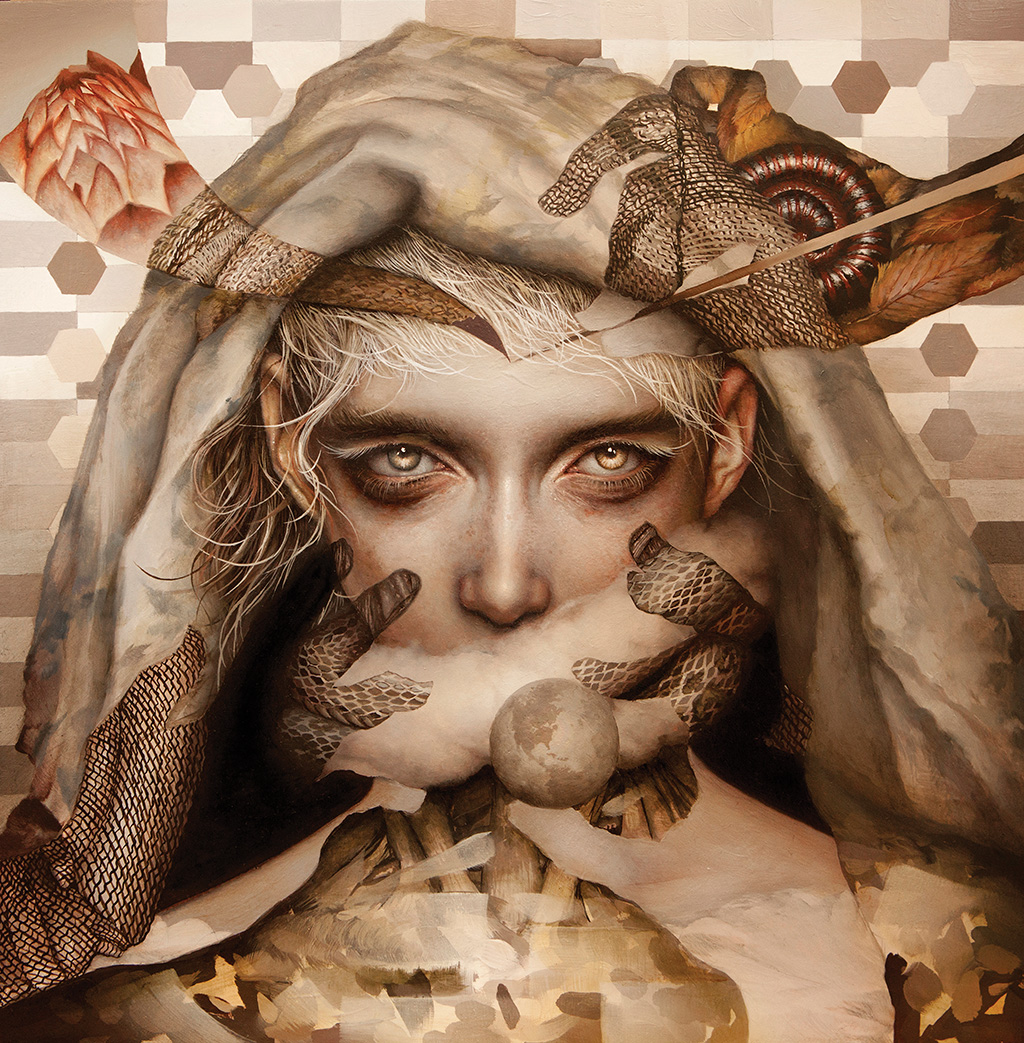
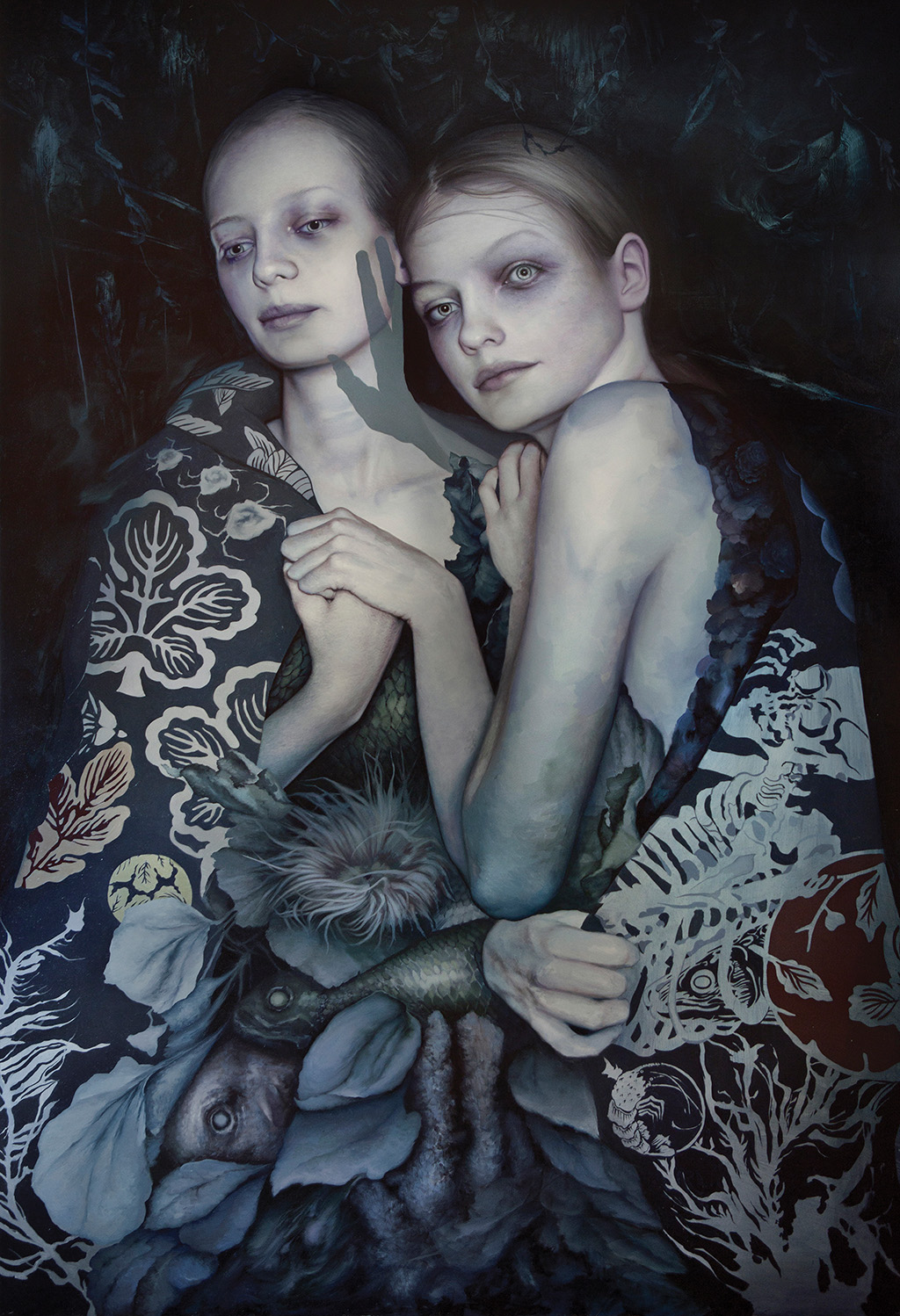
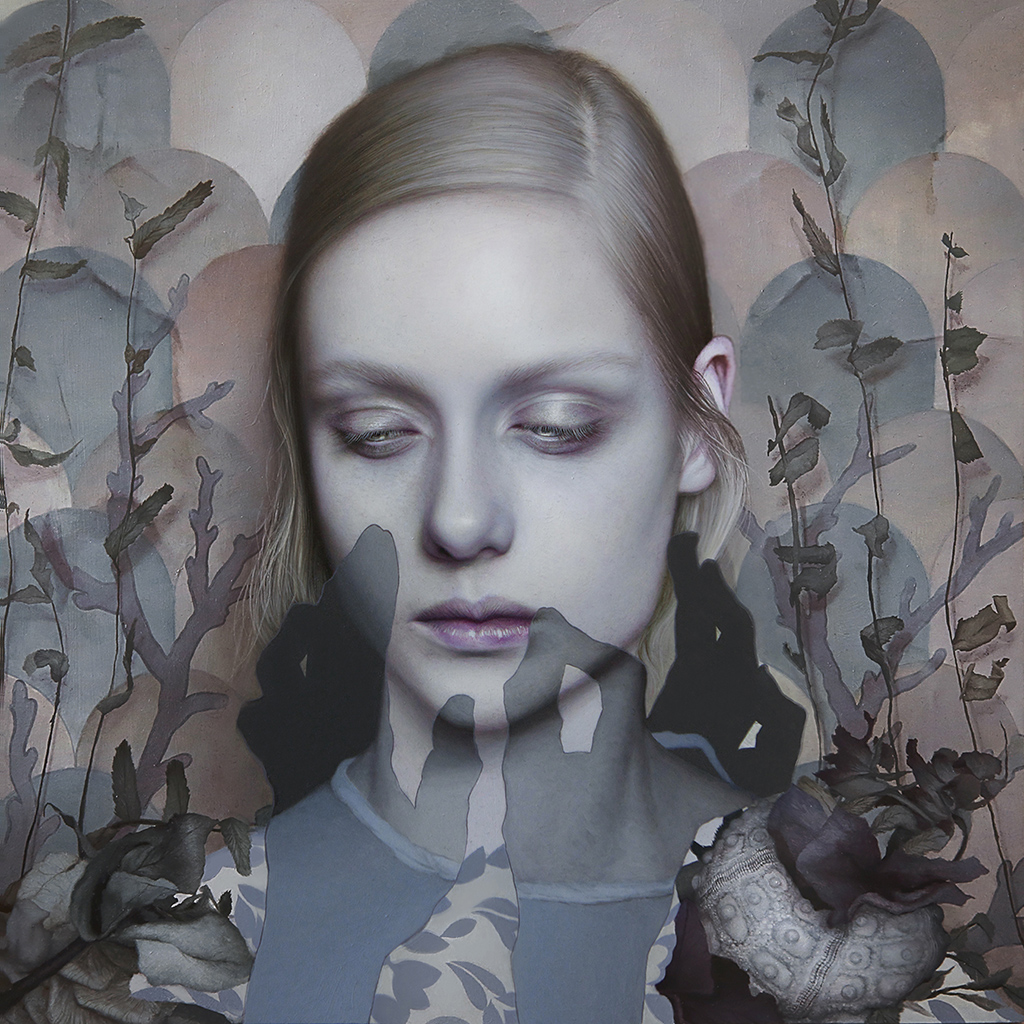
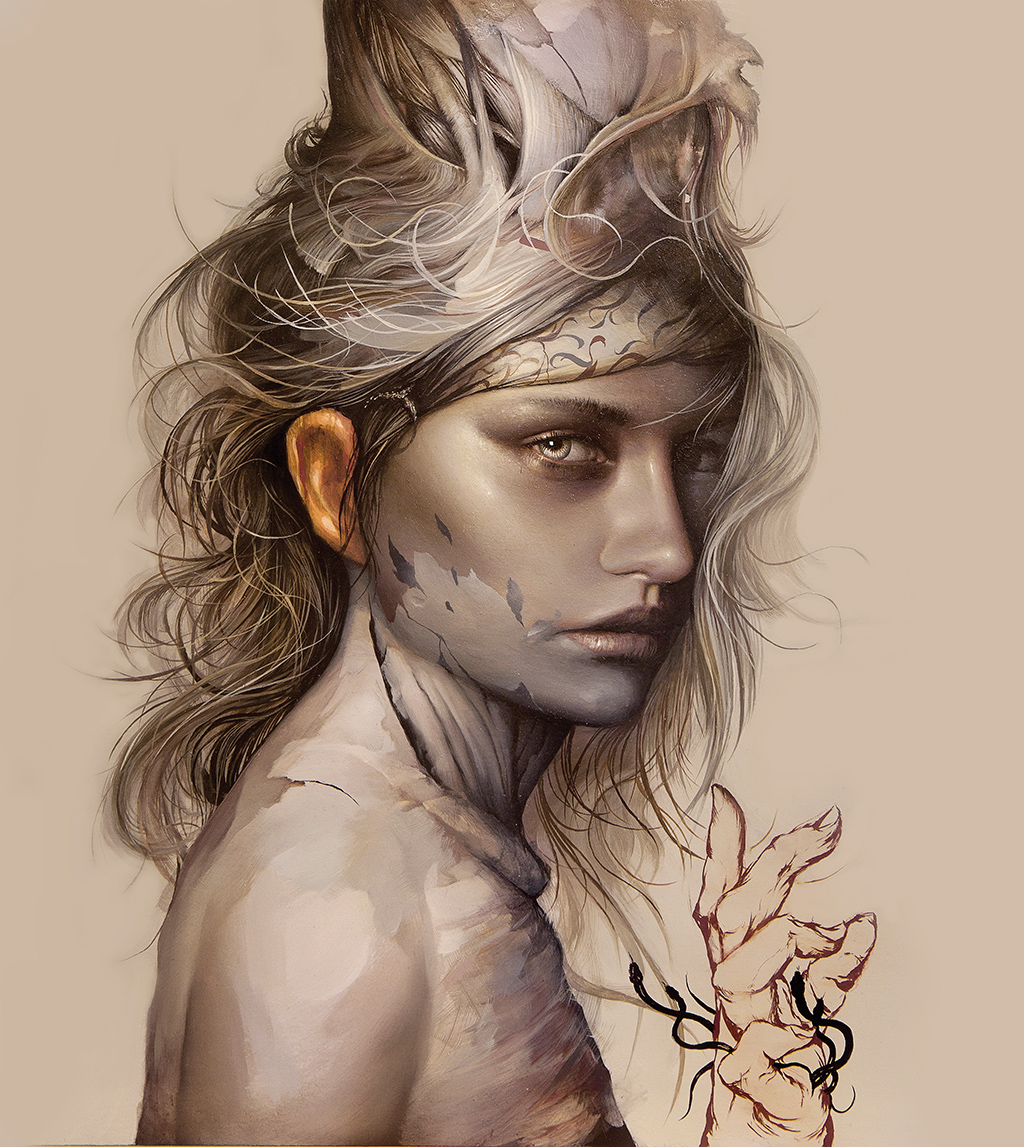
Dan's Web Site
Instagram: QUINTANARTE
DAN QUINTANA Gallery

Interview by Rantz Hoseley
HEAVY METAL: How long have you been making art? Was this always the thing that you wanted to do?
DAN QUINTANA: I've been creating art for as long as I can remember holding a crayon or pencil. This is something I can recall wanting to do full time as a kid. I was leaning more towards being a great comic book artist one day. Ha ha.

HM: There’s a lot of different elements that peek through in the style your work. What were your biggest influences in the development of your aesthetic and visual approach?
DQ: I'm sure film had to do a lot with it. My father introduced me to a lot of '50s classic sci-fi, horror, and epic adventures on TV from stuff he grew up on. I grew up throughout the '80s and '90s as a kid watching MTV with a lot of those great experimental clay animated music videos and animated shorts. At the same time reading comic books and those Alvin Schwartz stories, illustrated with cool horror imagery. It wasn’t until my teens where I began really looking into discovering the surrealist and classical painters we all know of.



HM: Many artists have a seminal visual experience… a piece of art, a film, sometimes a book or a piece of music that really flipped the switch for them and made it clear that they had to create. Did you have that kind of experience? If so, what was the work that lit up your brain?
DQ: For me it's always been a mesh of visuals early on so I had been creating from the very start. Even if it weren't drawing or painting yet, I recall constructing my own toys, etc.
I think what really flipped the switch was when I remember seeing this image from a Hieronymus Bosch painting. It's a detail scene from a much larger painting. There's this farmer being mauled alive by this beast in broad daylight and what seems to be his wife, is about to run away dropping her pitchfork and only then, by scanning the dirt trail she's fleeing on, you discover the little details throughout the bushes and trees that there exist other beasts about to ambush her. The entire scene is a trip. I can't imagine witnessing a loved one being attacked that way and feeling so helpless. It was great story telling with still images. I wanted to begin storytelling with images of my own.



HM: How much of your style and technique is developed individually, through personal trial and experiment, versus formal training?
DQ: All of it. I never attended art school. I'm definitely not against it at all. I just had an early start and my path was laid out differently. I read up on a lot of oil techniques from art professors' notes. Once the internet became more accessible at home, the rest was history. Dial up was a bitch, though.
HM: In your work, there’s a blend of soft innocence colliding up against darker, deadlier themes. Can you talk a bit about why those oppositions are important to you?
DQ: Subtlety. I believe you can make something scream without all the gore. Suggesting just a tiny drop can have much more impact at times.



HM: You work in video, as well as mixed media, and oils. What is your favorite format to express yourself in?
DQ: I'm universal due to my past art-related jobs. I love film editing, so when drawings or an oil painting or a digital art piece is introduced, you land up with something like animation that I find a real pleasure in playing with. I don't have a fave as I love them all equally.
HM: What is your Mt. Everest… the thing you are dying to climb creatively, that you haven’t scaled yet?
DQ: Would love to design and be the art director to an entire film. Soon enough.




Dan's Web Site
Instagram: QUINTANARTE
Announcements
Newsletter
Browse by tag

Interview by Rantz Hoseley
HEAVY METAL: How long have you been making art? Was this always the thing that you wanted to do?
DAN QUINTANA: I've been creating art for as long as I can remember holding a crayon or pencil. This is something I can recall wanting to do full time as a kid. I was leaning more towards being a great comic book artist one day. Ha ha.

HM: There’s a lot of different elements that peek through in the style your work. What were your biggest influences in the development of your aesthetic and visual approach?
DQ: I'm sure film had to do a lot with it. My father introduced me to a lot of '50s classic sci-fi, horror, and epic adventures on TV from stuff he grew up on. I grew up throughout the '80s and '90s as a kid watching MTV with a lot of those great experimental clay animated music videos and animated shorts. At the same time reading comic books and those Alvin Schwartz stories, illustrated with cool horror imagery. It wasn’t until my teens where I began really looking into discovering the surrealist and classical painters we all know of.



HM: Many artists have a seminal visual experience… a piece of art, a film, sometimes a book or a piece of music that really flipped the switch for them and made it clear that they had to create. Did you have that kind of experience? If so, what was the work that lit up your brain?
DQ: For me it's always been a mesh of visuals early on so I had been creating from the very start. Even if it weren't drawing or painting yet, I recall constructing my own toys, etc.
I think what really flipped the switch was when I remember seeing this image from a Hieronymus Bosch painting. It's a detail scene from a much larger painting. There's this farmer being mauled alive by this beast in broad daylight and what seems to be his wife, is about to run away dropping her pitchfork and only then, by scanning the dirt trail she's fleeing on, you discover the little details throughout the bushes and trees that there exist other beasts about to ambush her. The entire scene is a trip. I can't imagine witnessing a loved one being attacked that way and feeling so helpless. It was great story telling with still images. I wanted to begin storytelling with images of my own.



HM: How much of your style and technique is developed individually, through personal trial and experiment, versus formal training?
DQ: All of it. I never attended art school. I'm definitely not against it at all. I just had an early start and my path was laid out differently. I read up on a lot of oil techniques from art professors' notes. Once the internet became more accessible at home, the rest was history. Dial up was a bitch, though.
HM: In your work, there’s a blend of soft innocence colliding up against darker, deadlier themes. Can you talk a bit about why those oppositions are important to you?
DQ: Subtlety. I believe you can make something scream without all the gore. Suggesting just a tiny drop can have much more impact at times.



HM: You work in video, as well as mixed media, and oils. What is your favorite format to express yourself in?
DQ: I'm universal due to my past art-related jobs. I love film editing, so when drawings or an oil painting or a digital art piece is introduced, you land up with something like animation that I find a real pleasure in playing with. I don't have a fave as I love them all equally.
HM: What is your Mt. Everest… the thing you are dying to climb creatively, that you haven’t scaled yet?
DQ: Would love to design and be the art director to an entire film. Soon enough.















